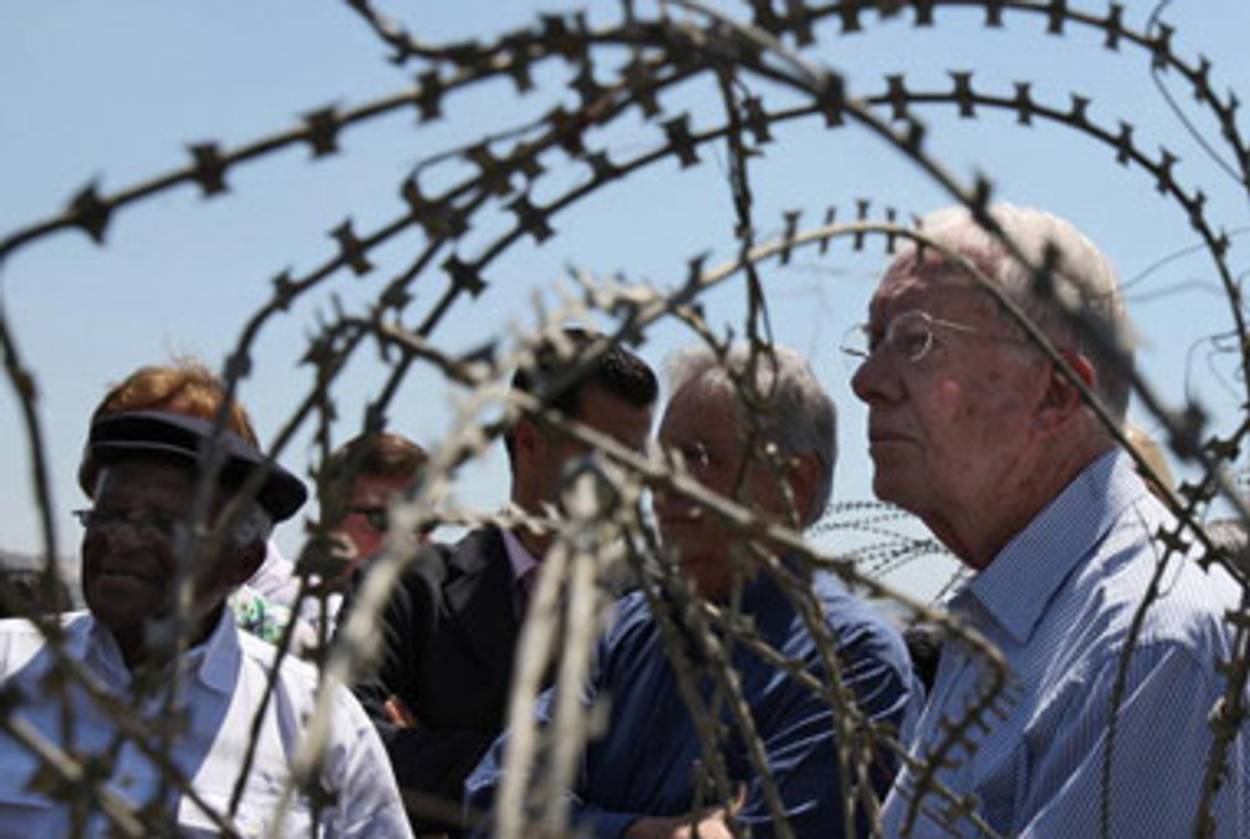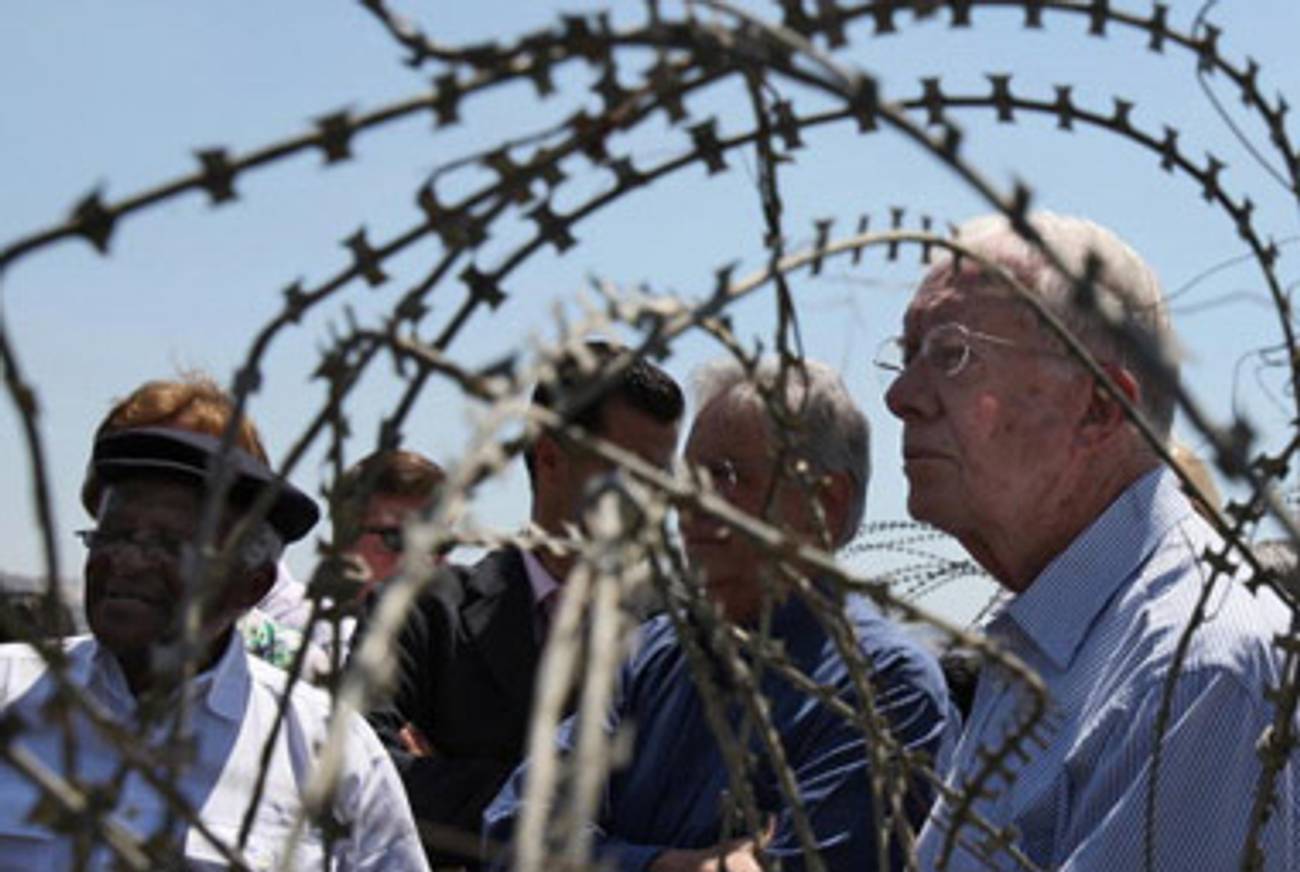Freeze That Settlement?
Three opinions (but only one Jew) in today’s op-ed pages




As we noted earlier today, the 455 new houses Israel is building in the West Bank will be located in settlements likely to end up in Israel proper even should a separate Palestinian state emerge. However, the announcement of new building has prompted a broader and provocative discussion of the importance (or unimportance) of a settlement freeze—something President Obama has called for—and specifically its relation to economic growth in the Palestinian territories.
The anti-settlement cause was buttressed by a prominent (if unsurprising) voice: Jimmy Carter. The former president, who a few years ago published Palestine Peace Not Apartheid, reported Sunday on a trip he took to the territories with a few other former world leaders, whom he refers to (somewhat creepily, no?) as “the Elders.” “We found a growing sense of concern and despair among those who observe, as we did, that settlement expansion is continuing apace,” he relates. He calls a settlement freeze “key.” This earned him the ire of prominent neoconservative writer and former Bush adviser Elliott Abrams, who chastised Carter and cited the West Bank’s predicted 7 percent rise in GDP (“a rate of growth that would be far in excess of ours—or Israel’s”) as evidence that Palestinian society is, with Israel’s conscious help, actually beginning to thrive. Also today, this time on the International Herald Tribune’s opinion page, Zahi Kouri, who runs the West Bank’s Palestinian National Beverage Co. (which appears to be a Coca-Cola bottler), credits that 7 percent growth rate not to Israeli benevolence but to “Palestinian reforms undertaken in spite of the obstacles Israel continues to place in the way of Palestinian development.” Like Carter, he deems a settlement freeze “a crucial first step to salvaging the two-state solution.”
Actually, a crucial first step would be knowing whose facts to believe. But in a world where everyone has an opinion, perhaps that’s asking too much.
The Elders’ View of the Middle East [WP]
What Carter Missed in the Middle East [WP]
The West Bank’s Deceptive Growth [NYT]
Marc Tracy is a staff writer at The New Republic, and was previously a staff writer at Tablet. He tweets @marcatracy.